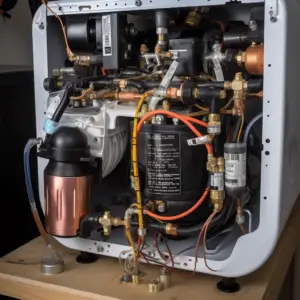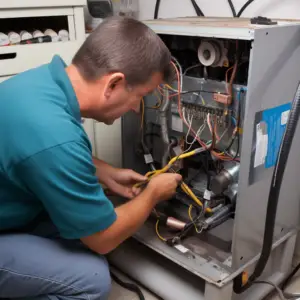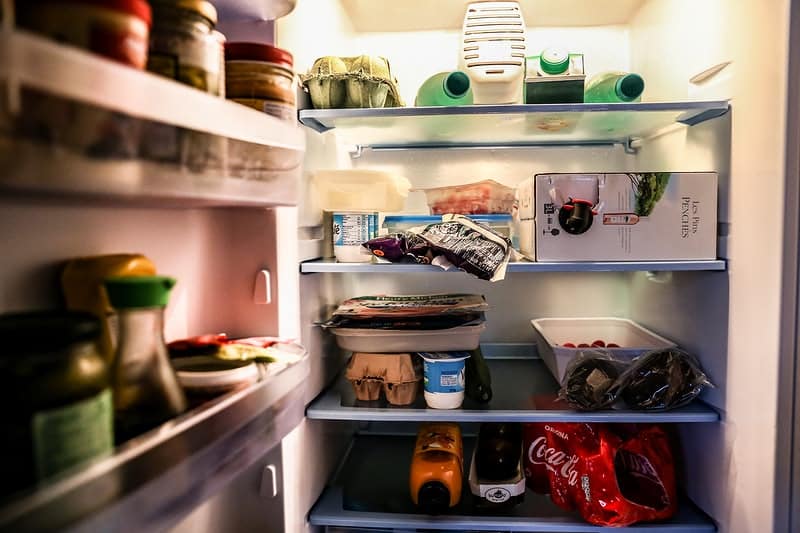Refrigerator Issues, While most homeowners hardly give it much thought, a refrigerator is probably the hardest working home appliance that is operational around the clock, keeping your food fresh.
However, due to rigorous wear and tear, the fridge may develop issues such as cooling problems, broken drain plates, defrost problems, faulty wiring, door closing problem among others. After all, what else operates continuously for years, or decades sometimes without breakages?
That said, it is one thing for a refrigerator to stop running and another to stop running without sound. Normally, a fridge might fail to cool but it is still going to make a gentle hum that is noticeable in the background to let you know that it’s trying to remain functional.
Table of Contents
Why Makes Refrigerators Stop Running With No Sound

A refrigerator that stops running without sound may have a faulty compressor. The system circulates refrigerant through this compressor. Moving the refrigerant regulates the fridge’s temperature.
Turn off the fridge and leave it for a few hours to fix this. Then try again. If that fails, replace the compressor.
Note that the compressor generates the humming noise you’re used to, even if other components are usually supposed to make the sounds.
Therefore, check for compressor damage. We’ll describe how to fix a refrigerator compressor that’s not creating sound in the next segment.
Steps to Follow If Your Refrigerator Stops Running No Sound
There are a few things that can make the fridge stops running without sound, but in most cases, this problem is caused by a faulty compressor. As mentioned, the compressor is responsible for moving refrigerant in the appliance. This is the main reason for the humming sound you often hear.
Unplugging the fridge for a few hours might help resolve this problem. However, it is important to remain patient when working on fixing the compressor as it may take time to fix it for a few hours.
Inspecting the Compressor
The first thing should be to check the compressor in your refrigerator. This may not be easy for some models, so you might want to move to the next step. But before doing so, adjust the cooling in the fridge to see if that makes up for anything.
For instance, Refrigerator Issues could be the settings that went haywire causing the refrigerator to stop working the way it is engineered to. Once you’ve done that, take a peek at the compressor, preferably near the bottom of the fridge. You can also access it through the back panel.
Experts suggest that you shouldn’t remove the compressor unless this is something you’ve done before. Removing the compressor might not be as challenging as putting it back in place. Besides, it’s a good idea to consider looking at other types of solutions including the ones that have been discussed below.
Unplug the Fridge
In the event that your refrigerator is not making a sound but the light is on, it means the power supply is working just fine. Even so, the compressor of the fridge might not be receiving enough power (or no power at all), and this can be a reason why it is not making noise.
To resolve this issue, a good thing would be to rest the appliance. Simply take out the plug and let it sit. The point behind doing this is to make sure power is not circulating through the fridge for a few hours.
Turn On the Refrigerator after 2-3 Hours
After about three hours, plug in the refrigerator to turn it on. Gently ramp up the cooling when doing this to see how the compressor responds. You should start hearing a faint sound as soon as the fridge has been plugged in.
At this point, you can leave the fridge to continue running to check whether the noise will resume back to what you want it to be.
Refrigerator Issues that doesn’t work, then it means the compressor has slowly blown out and needs to be repaired or replaced. The downside to this option is that it can be a bit expensive and you might want to avoid it unless you don’t have any other alternative left.
Replacing the Compressor

Again, the compressor is likely to be challenging and expensive to fix or replace. You might end up spending more than $300 for w complete replacement. Not to mention that it can rise depending on the type of model you are looking for. Refrigerator Issues is recommended to speak to a specialist and learn more about the various options available.
The Bottom Line
On a basic level, a refrigerator works on the same common system as an air conditioner in your house or car. The closed-loop of a refrigerator absorbs heat and humidity from the interior storage compartments, generally in the freezer. It then passes through a sequence of coils that draw off and dissipate the heat into the air.
The compressor, on the other hand, makes the heat transfer possible and repeatable, changing the refrigerant from a gaseous to a liquid form. In fact, people hear when the refrigerator kicks is the compressor motor running the compressor.
The fact that refrigerators have several components such as timers, overload switches, thermostats, and fans makes them susceptible to breakdowns. These components are designed to facilitate the cooling process and keep everything working as expected.
Automatic-defrost units, for instance, incorporate heaters that cycle on and off automatically to prevent frost buildup. Failure of any of these systems or individual components can make your fridge stop working properly.
Whatever you do to fix these problems, try and keep the cold in. You can greatly forestall food thawing and spoilage by opening the doors as little as possible. Every second you leave the door open raises the temperature in the fridge and freezer compartments.


